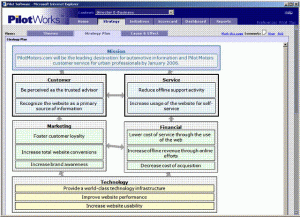As I have in previous years, I had planned to catalog 2009 predictions for the BI and performance management markets to get a sense of how the general consensus might be changing. The new year is nearly a month old and, since I’ve made almost no progress, I was pleased to discover that Timo Elliott beat me to…







